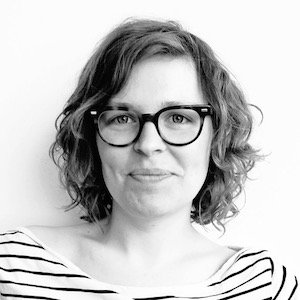The transition to renewable energies requires new ways of designing. Success won’t come in the form of technologies alone – such as a more efficient washing machine or a bigger and better battery. Techno-solutionism/optimism can only take us so far in this transition. Instead, we need to also be revaluating how design positions the human/ or user / or consumer in this transition. Renewable energy technologies and infrastructures will require the humans to coordinate with nonhuman forces, such as wind, the sun, or perhaps even animals.
We suggest that the design of products and services need to re-evaluate its human-centered orientation and instead equally prioritize other types of agents. Instead of anticipating, catering to, and exceeding consumer’s needs, what if products and services balanced them with that of other nonhumans? Human-centric design has left all sorts of actors out of the loop: such as pets from smart thermostat systems.
Designing energy futures that break with human-centric norms is challenging, is it ever possible to break through our own human lenses? How can we design for people and rivers, which have the same legal status as humans in New Zealand for example? In this workshop, we will conduct a short speculative design exercise and discuss the ways in which designing and developing must change in the future.
Program
This informal workshop will last 90 minutes and will consist of a brief introduction to the subject, a short speculative design exercise, followed by a group discussion.
Organizers:

Holly Robbins is a postdoctoral researcher at the department of industrial design at the Eindhoven University of Technology where she explores posthuman design research within the context of the transition to renewable energies. Robbin’s blends design research with anthropology and philosophy of technology to explore how to make the complexity behind systems legible. Robbins is a co-author of the IoT manifesto, and also advocates for the responsible design of connected technologies.

Joep Frens is assistant professor at Eindhoven University of Technology. His research focuses on the question of ‘how to design for open and growing systems’. He teaches courses on (interaction) design on all academic levels and advises a number of PhD students. In the academic year of 2014-2015 he held the Nierenberg Chair of Design at the Carnegie Mellon University School of Design. When he sees a sheet of cardboard he makes a model out of it.

Lenneke Kuijer is Assistant Professor in the Future Everyday Group at the Industrial Design Department of Eindhoven University of Technology. Lenneke has worked at the touching points of social practice theories, design and domestic energy demand. She did her postdoc in the DEMAND Centre at the University of Sheffield (UK). Over the past four years, her focus has been on the HCI community and in particular the relation between ‘smart’ technologies (and their design processes) and changes in everyday life.